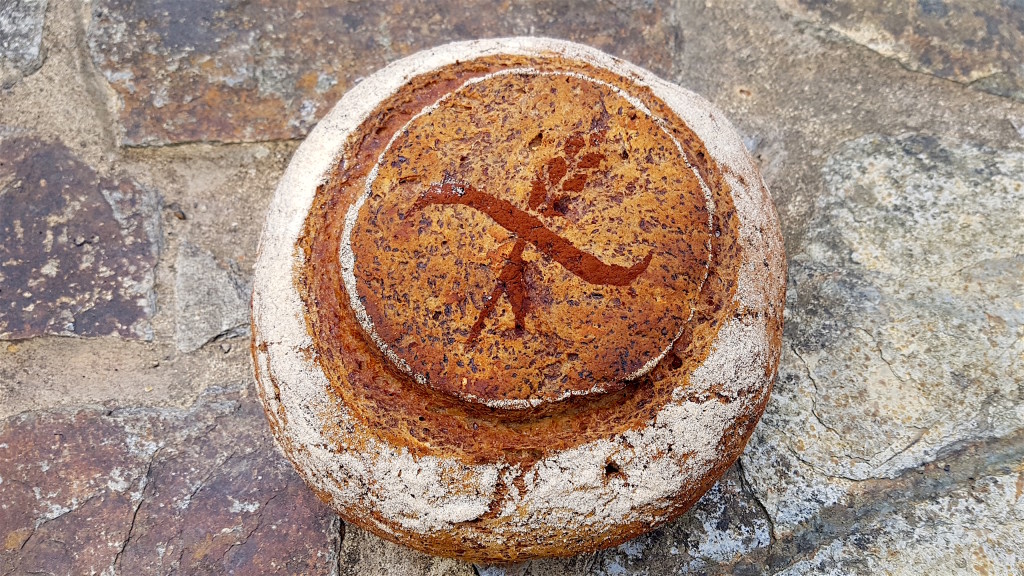
The real cost – and the true value – of baking your own.
Do you buy your gluten free bread, or do you bake it? In March this year, Coeliac UK published their Cost of Living Report, in which they stated that:
“A gluten free loaf of bread is on average 4.3 times more expensive than a standard gluten-containing loaf and there is even more disparity between the cheapest products, with the cheapest gluten free loaf of bread costing 7.2 times more than the cheapest gluten-containing loaf.”
The limited variety and budget options for all gluten free products puts a disproportionate burden on those with the lowest incomes, which can be even greater for families with more than one person diagnosed.
What the report did not cover was the difference in cost between buying gluten free bread, and baking it yourself.
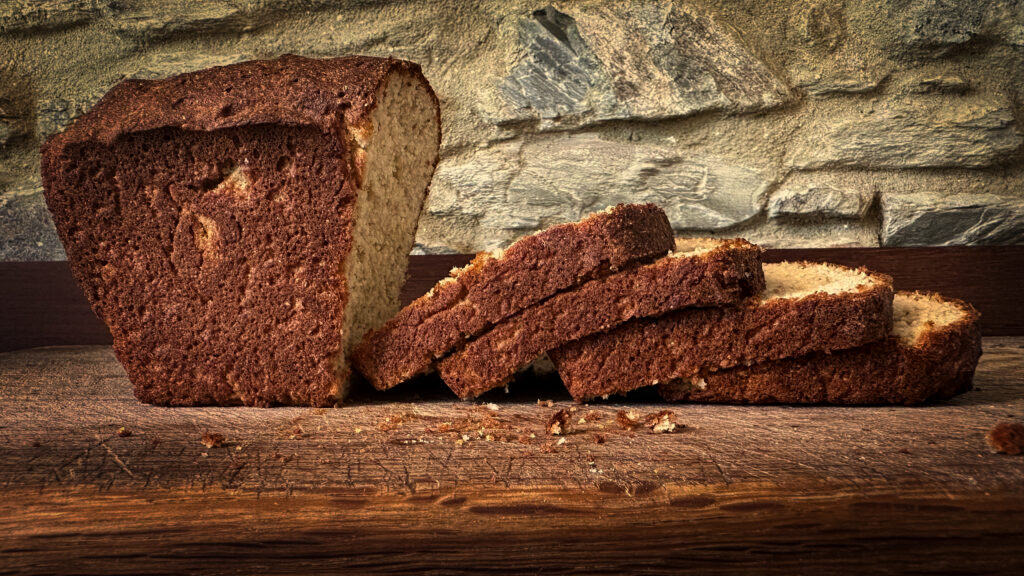
Here at The Artisan Bakery School, we think baking your own bread is important for a whole bunch of significant reasons, but first let’s have a look at the costs.
Ingredients & Equipment
You don’t need any special equipment to bake your own gluten free bread, just all the same items as you’d use for regular bread. There is no point investing in a dough mixer, because all you will need to do is stir / combine the ingredients: no gluten = no kneading, yay!
Your ingredients can be as simple as you choose. The list of gluten free flours we frequently use at the School are below, with their current prices per kilo and links to our suppliers. The cost per kilo averaged out over those 25 different flours is £5.63, but if you avoid the pricier choices, such as chestnut flour or hemp, that average comes way down. The expensive flours are ones you would tend to use sparingly, anyway, e.g. hemp is fantastically nutritious, but you only need 10% in your flour blend, so you’d never buy a kilo unless you were baking in bulk.
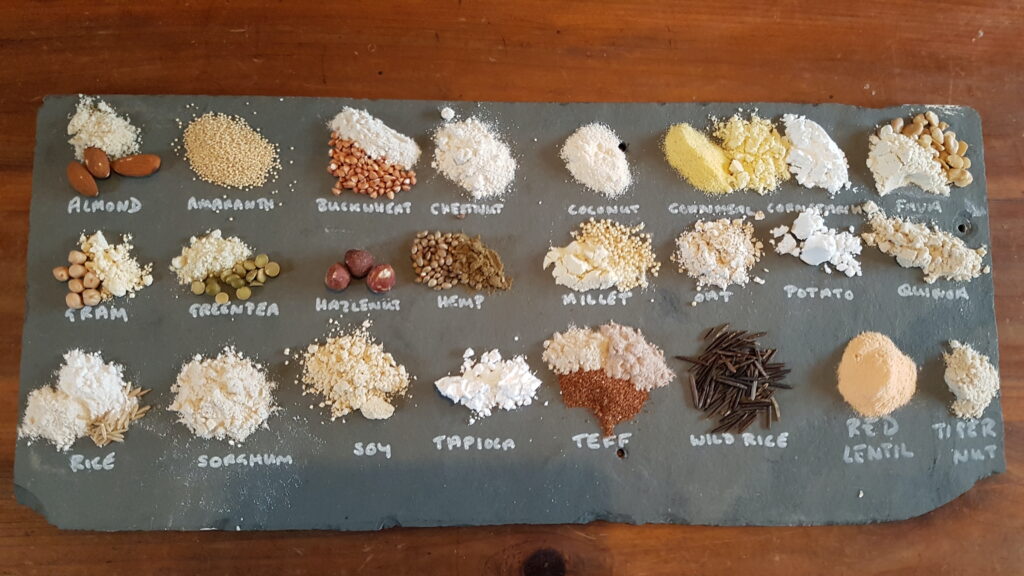
Gluten Free Flours Price List
- Almonds (ground) £9.25
- Amaranth £9.10
- Arrowroot £12.95
- Buckwheat £4.00
- Cassava £7.49
- Chestnut £8.40
- Coconut £3.66
- Corn starch £3.28
- Fava £5.38
- Gram £3.06
- Green Pea £3.99
- Hemp £11.97
- Lentil (red) £10.00
- Millet £3.53
- Oat £2.86
- Potato starch £3.20
- Quinoa £5.10
- Rice (brown) £2.03*
- Rice (white) £2.00*
- Sorghum £2.93
- Tapioca £3.06
- Teff (brown) £3.73
- Teff (white) £4.06
- Tiger nut £11.20
- Yellow pea £4.48
*Based on 16 kg sack
The binders we use to mimic the effect of gluten in making the breads bouncier and chewier, are all natural plant materials: psyllium husks, linseed, chia seed and camelina seed. (We never use xanthan gum.) We are currently assessing the virtues of bamboo flour. The percentage of binder to flour and water dictates the firmness of your dough, which can be anything from a batter bread you rise in a tin, to daintily braided bread rolls and pizza.
All the binders are good dietary fibre and help you feel full for longer, so you will naturally eat less bread, and suffer fewer sugar spikes because the GI index is so low. Psyllium is our favourite binder, currently running at a whopping £24 per kilo, but you only need 20g per kilo of flour (48p) to make a batter bread with, so it is very economical.
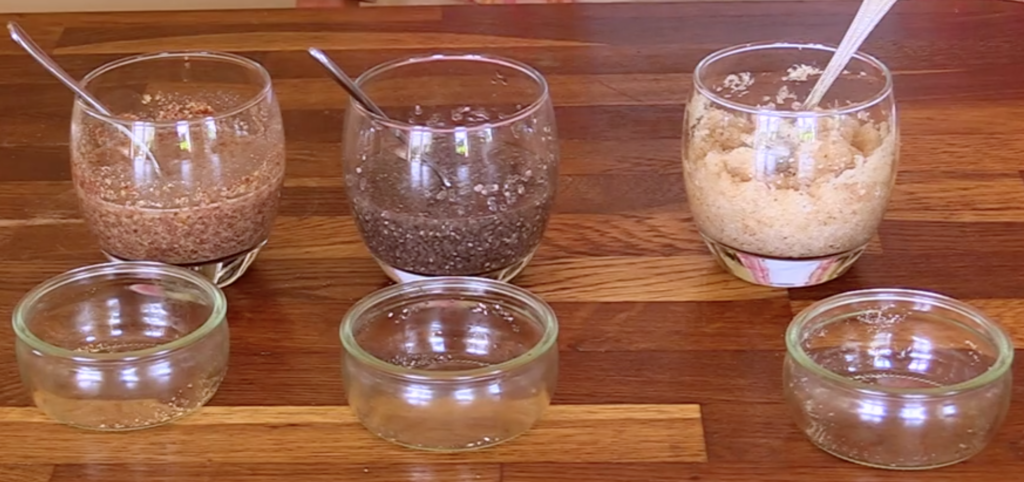
The instant yeast we use is Doves Farm, and we occasionally use bicarbonate of soda to make soda bread, but our favourite gluten free is sourdough. We make and keep both brown rice, sorghum and buckwheat starters in our fridge, and we have courses devoted to mastering the art of sourdough fermentation.
The remaining ingredients – seeds, sugars (honey, agave, maple, brown rice syrup, date syrup, coconut sugar etc) organic cider vinegar and salt – are pretty much a matter of personal choice. You can splash out or economise; none of the quantities are very big, the sugars being there to optimise yeast function, not to sweeten the dough.
Talking money
The specific cost for a kilo of our House White or House Brown Blends, as taught on all our gluten free courses, is currently £2.98 for White and £3.36 for Brown.
House White Blend per kilo
- 500g white rice £1.00
- 250g oat* £0.72
- 125g tapioca £0.38
- 125g potato £0.40
- 20g psyllium £0.48
- Total: £2.98
- *or sorghum £0.73
Classic White Loaf
- 550g House White flour £1.64
- 11g salt £0.02
- 6g yeast £0.10
- 400g milk £0.48 (organic= £1.25 per litre)
- 30g brown rice syrup £0.36 (£1.23 per 100g)
- 20g cider vinegar £0.12 (59p per 100 ml)
- 2 large eggs £1.16 (free range organic 58p each)
- Electricity £0.10
- Total: £3.98
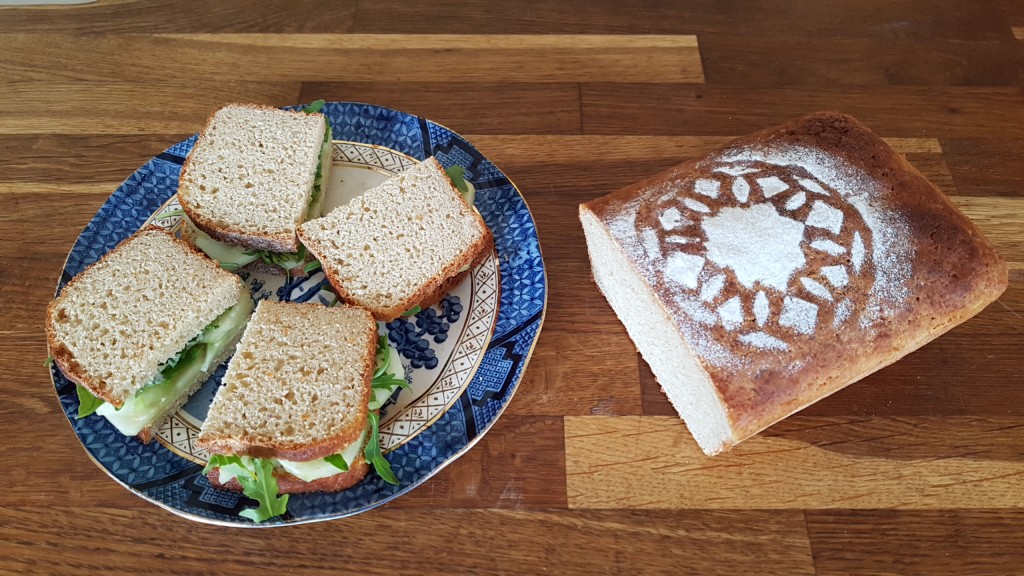
The cost of making two small, Classic White Loaves (dough weight 558g, baked weight 500g approx. each), including 10p for baking in an electric oven, is £3.98, or £1.99 each. The cost for the vegan option using homemade aquafaba and plant milk would be slightly lower.
For ease of comparison, we’ve worked out the costs per 100g of bread:
Warburtons Gluten Free Soft White Loaf costs 71.7p
Genius Soft White Farmhouse loaf costs 64p
Baking your own is 39p !
The value of baking your own gluten free bread, however, goes far beyond the price on the ticket.
All your flours and other ingredients are, or can be, organic, reducing your personal intake of residual pesticides/herbicides, and supporting farmers who are pursuing soil-friendly, gut-friendly, eco-friendly farming methods. Organic flours are also crucial for sourdough cultures.
The list of ingredients in your own bread is shorter than the lists on industrially produced loaves of gluten free. What you’re leaving out is just as significant to your health as what you’re putting in. When manufacturers boast of ’more than 27 ingredients’ in a single loaf of bread, you know something must be up. Chemicals, additives, preservatives…it’s gut-wrenching reading.
Personalised nutrition; baking yourself better.
Apart from the sheer pleasure of ditching industrial ‘bread’ and baking your own, filling your home with such heart-warming aromas, there are the benefits of learning to bake with the kinds of flour that will nurture your personal health. Minerals, vitamins, proteins, phytonutrients; nature’s pharmacy is right there in the toast on your table. It’s not so much about leaving gluten out, as putting good stuff in. Our Guide to Gluten Free Flours(available on our courses) gives a useful overview of what they contain, and how to use them.
A toast to perfection; customising crumb and crust.
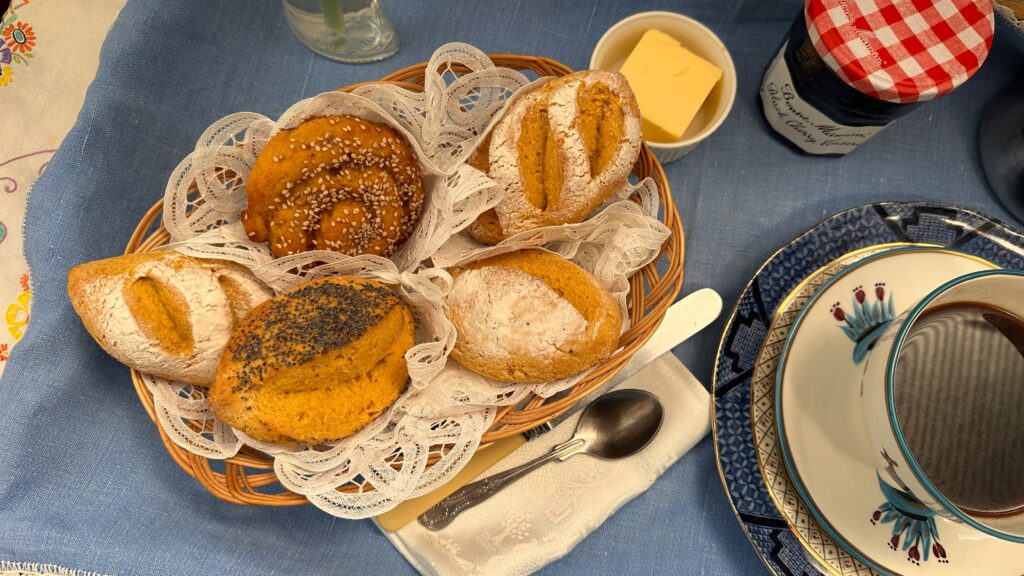
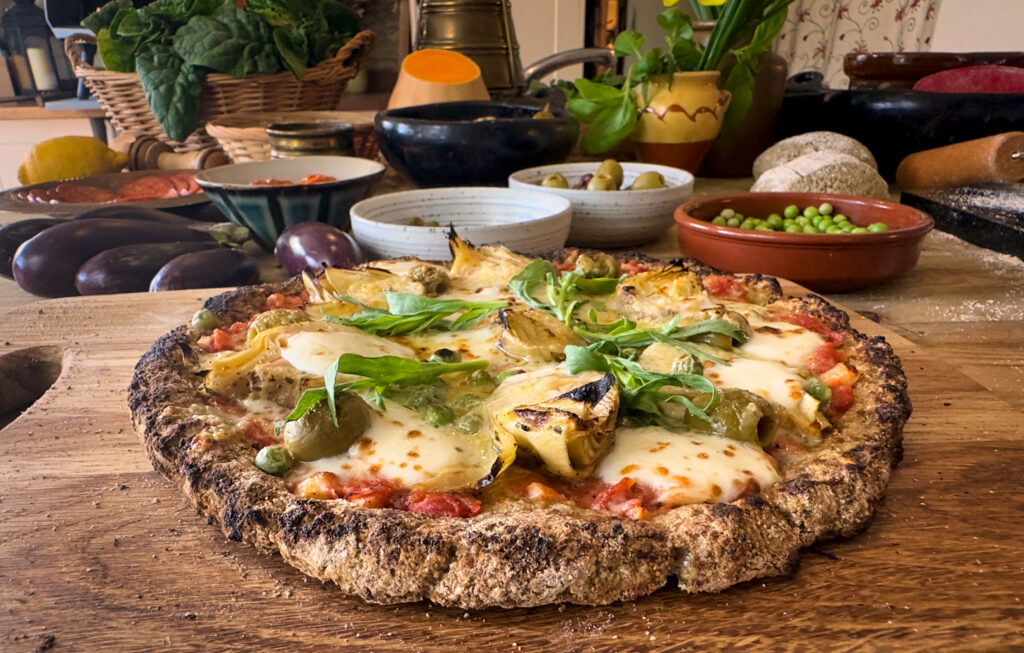
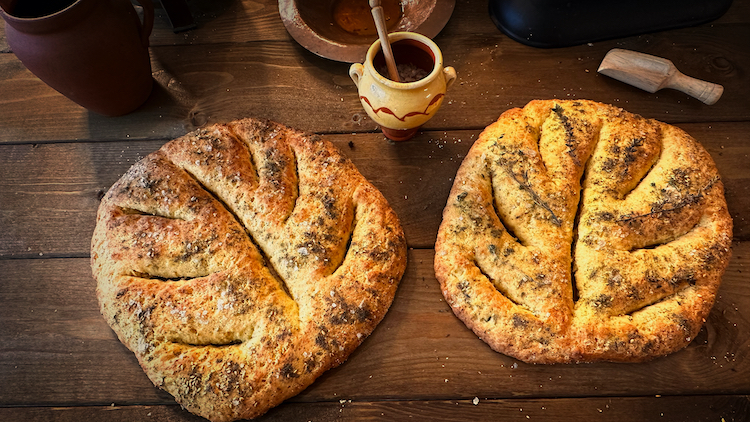
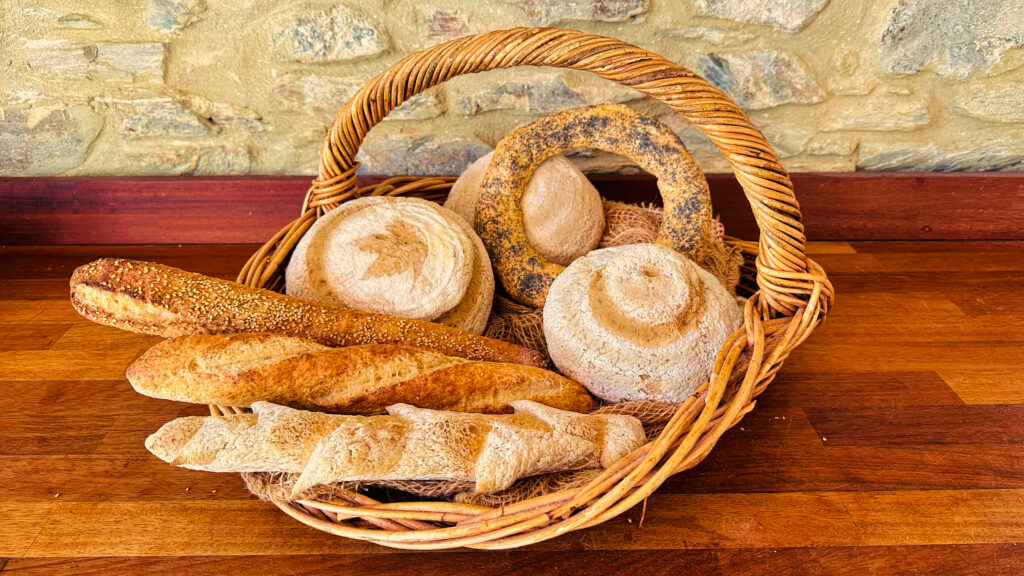
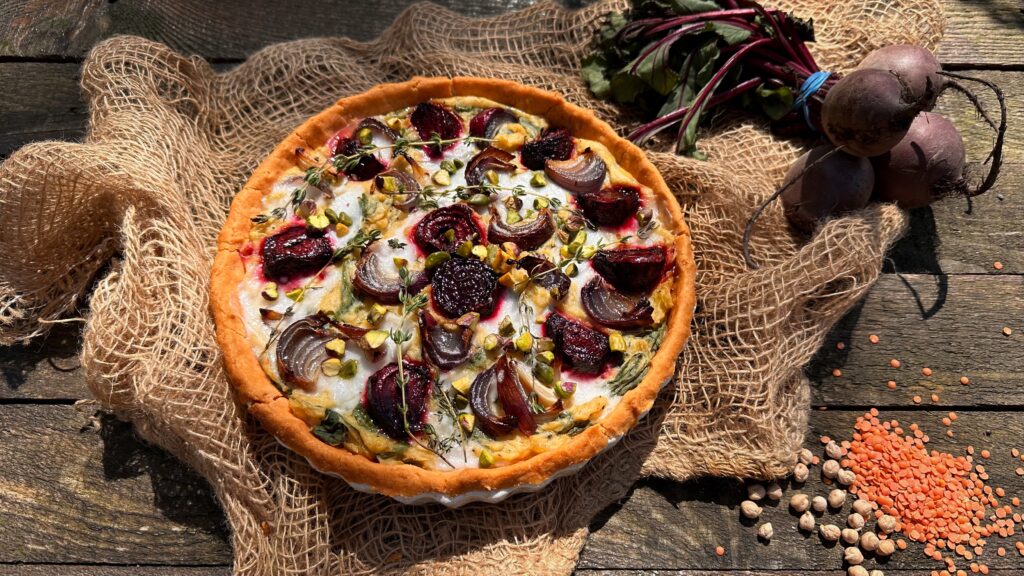

On your journey towards the most nutritious loaf for you, you will discover just how versatile gluten free bread can be. Try pizza, pitta, pancakes, baguettes, batards and boules, breakfast rolls, white, brown, gold, red, green (hello pea flour) and even a wickedly dark teff-cacao chocolate bread. The style and finish of your gluten free breads will be a glorious assertion of individuality that makes the sliced white from the gluten free factory look about as delicious as the plastic it’s wrapped in.
Baking your own gluten free breads, pizzas and pastries is good for your pocket and great for your health.
Healthiest of all is your gluten free sourdough artisan bread. All that fermentation of the dough means you can say goodbye for good to bloat and fatigue, and enjoy better bioavailability of flour nutrients. You can control the amounts of sugar and salt you add in, you can choose flours to compensate for things your body lacks, you bake your breads vegan and you can make them so pretty, it’s mood-enhancing just to look at them.
In the long term, baking your own breads at home, whether gluten free or not, is about taking your health and longevity into your own hands, and feeling happier for it. To rephrase a very old saying, “Better pay the miller than the doctor”.

